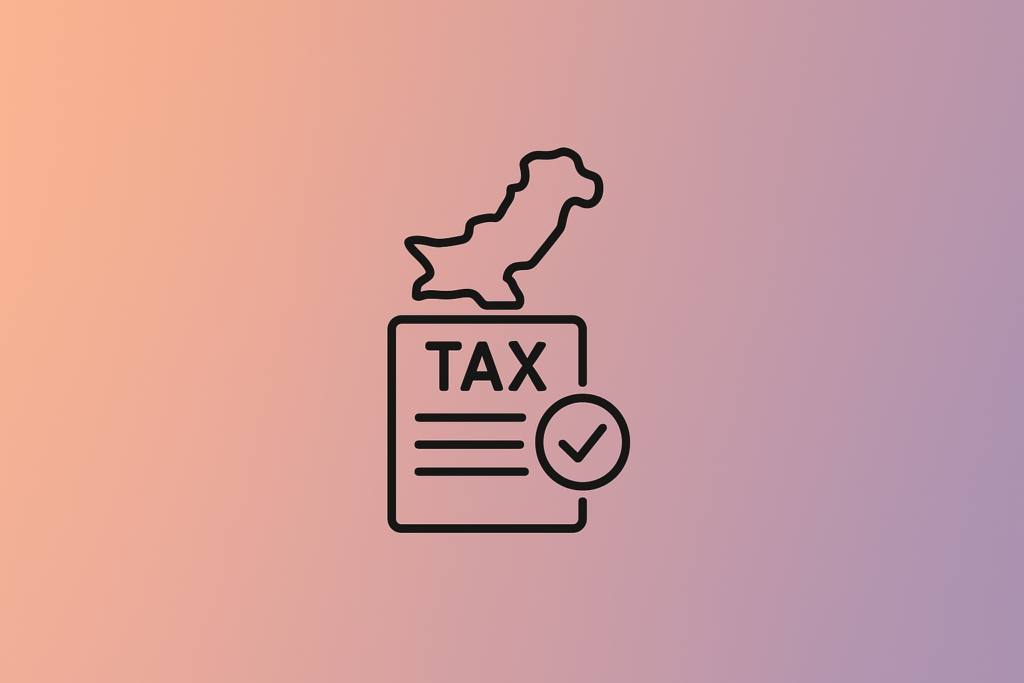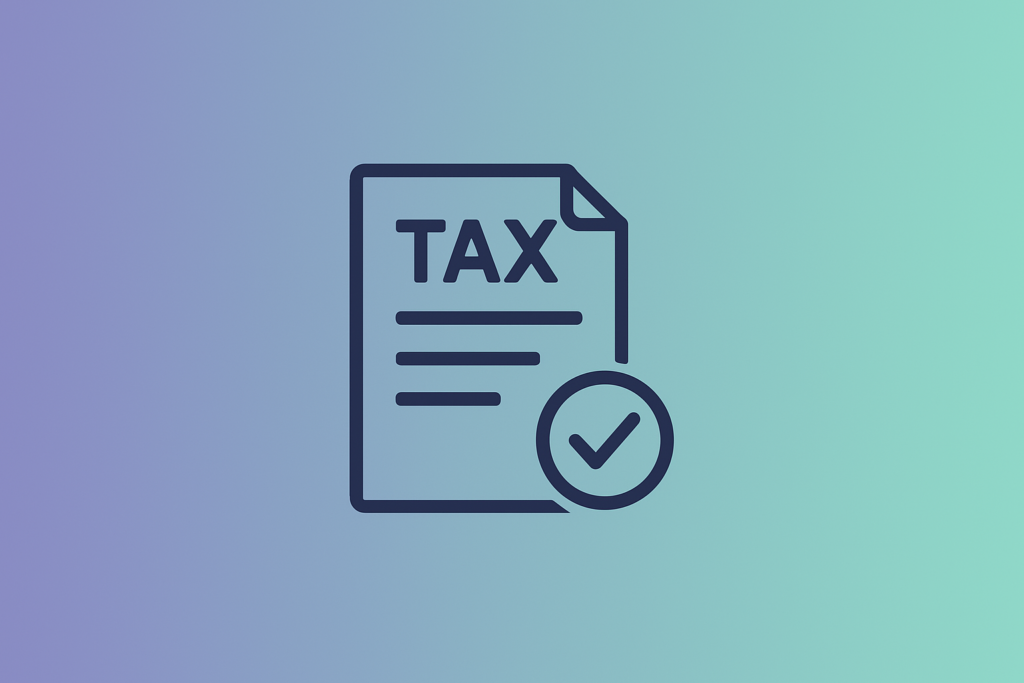Hello, I’m Shahzad Ahmad Mirza, a seasoned legal tax advisor with over two decades of experience assisting small businesses in navigating Pakistan’s tax system. Filing tax returns can seem daunting, but with the right guidance, it becomes a manageable and even empowering process. Let’s walk through the essential steps to ensure your small business remains compliant and benefits from the available tax provisions.
1. Understanding the Importance of Tax Compliance
Filing tax returns is not just a legal obligation; it’s a testament to your business’s credibility and financial health. Compliance:
- Builds Trust: Establishes your business as a responsible entity in the eyes of financial institutions and partners.
- Facilitates Growth: Enables access to loans and grants that require proof of tax compliance.
- Avoids Penalties: Shields your business from legal repercussions and financial penalties associated with non-compliance.
2. Registering Your Business with the Federal Board of Revenue (FBR)
Before you can file tax returns, your business must be registered with the FBR. Here’s how:
- For Sole Proprietors:
- National Tax Number (NTN): Obtain an NTN by registering online through the Iris portal. You’ll need your CNIC, a mobile number registered in your name, and a valid email address.
- Business Details: Provide information about your business, including name, address, and principal activity.
- For Partnerships and Companies:
- Partnerships (AOPs): Register your partnership deed and obtain an NTN for the AOP. Details can be found on the FBR’s registration page.
- Companies: Register with the Securities and Exchange Commission of Pakistan (SECP) and then with the FBR. The process is outlined on the FBR’s company registration page.
3. Maintaining Accurate Financial Records
Accurate record-keeping is the backbone of tax compliance. Ensure you:
- Track Income and Expenses: Maintain detailed records of all business transactions.
- Issue Invoices and Receipts: Proper documentation supports your declared income and expenses.
- Use Accounting Software: Tools like QuickBooks or local alternatives can streamline record-keeping.
4. Understanding Tax Obligations for Small Businesses
Small businesses in Pakistan may fall under different tax regimes:
- Normal Tax Regime (NTR): Tax is calculated based on net taxable income after allowable deductions.
- Presumptive Tax Regime (PTR): Applicable to certain sectors where tax is deducted at source and considered final.
It’s crucial to determine which regime applies to your business to ensure correct tax calculation.
5. Calculating Your Taxable Income
To calculate taxable income under the NTR:
- Gross Income: Total revenue from all business activities.
- Allowable Deductions: Subtract business expenses that are permissible under tax laws.
- Depreciation and Amortization: Account for the reduction in value of assets over time.
The resulting figure is your net taxable income, on which tax is computed.
6. Filing Your Income Tax Return
Filing is done through the FBR’s Iris portal. Steps include:
- Login: Access your account using your NTN/CNIC and password.
- Select Return Form: Choose the appropriate form based on your business type and income sources.
- Fill in Details: Enter income, deductions, and tax payments accurately.
- Wealth Statement: Individuals must file a wealth statement detailing assets and liabilities.
- Submit: Review all information before submission to avoid errors.
For detailed guidance, refer to the FBR’s income tax return filing page.
7. Paying Your Tax Liability
After filing, any tax due must be paid:
- Generate Payment Slip ID (PSID): Created through the Iris portal.
- Make Payment: Use online banking, ATMs, or visit authorized bank branches to pay the tax.
Timely payment is essential to avoid penalties and interest charges.
8. Meeting Deadlines and Avoiding Penalties
The FBR sets specific deadlines for tax return submission, typically by September 30th each year. Missing deadlines can result in:
- Late Filing Penalty: A fine imposed for delayed submission.
- Additional Tax: Interest charged on unpaid tax liability.
Mark your calendar and set reminders to ensure timely compliance.
9. Seeking Professional Assistance
Tax laws can be complex and subject to change. Engaging a professional tax advisor can:
- Ensure Accuracy: Minimize errors in filing and calculations.
- Provide Updates: Keep you informed about changes in tax legislation.
- Offer Representation: Assist in case of audits or disputes with tax authorities.
10. Utilizing FBR Resources and Support
The FBR offers various resources to assist taxpayers:
- Video Tutorials: Step-by-step guides on tax return filing are available on the FBR’s tutorial page.
- Help Desk: For queries, contact the FBR helpline or visit their help portal.
Leveraging these resources can enhance your understanding and facilitate compliance.
11. How to File Tax Returns If You’re a Small Retailer or Sole Proprietor
If you’re running a general store, pharmacy, mobile shop, or any small retail business in your name, the process is straightforward—but must be done carefully.
You’ll typically file as an individual business person (sole proprietor) using your CNIC as your NTN.
When you log in to the FBR IRIS portal, here’s how you proceed:
- Choose “Income Tax Return for Individuals”
- In the ‘Business’ tab, enter:
- Name of business
- Address
- Start date
- Principal activity (e.g., grocery retail, mobile accessories, etc.)
- Declare your gross receipts or sales
- Declare expenses — rent, salaries, utilities, purchases
- Net income is automatically calculated
- Declare any deducted withholding taxes (on purchases or utility bills)
After submitting, file the Wealth Statement detailing your cash, inventory, shop value (if owned), bank balance, etc.
And yes — even if your profit is under the taxable limit, you must still file to be considered a filer.
12. Presumptive Tax vs Normal Tax for Small Businesses
One of the most confusing things I see small business owners struggle with is:
“Am I under normal tax regime or presumptive?”
Here’s a simple breakdown:
- Presumptive Tax Regime (PTR):
Tax is deducted at source (e.g., on utility bills, contracts, imports). It is final and cannot be adjusted. You are not required to calculate profit/loss in detail.Example: A small contractor getting 10% tax withheld on payments.
- Normal Tax Regime (NTR):
You calculate income – expenses = profit, and apply tax slabs. Withholding taxes are adjustable.Example: A shopkeeper selling goods, deducting business expenses, and paying tax on net profit.
To know which applies to you, check your FBR registration profile or consult a qualified tax consultant. You can also visit FBR’s tax regime breakdown or verify deductions through your utility and supplier invoices.
If your business has a stable record, switching to NTR is often more beneficial, as it allows you to claim business deductions and refunds.
13. Claiming Allowable Business Expenses
One of the biggest advantages of being under the normal tax regime is that you can legally claim a wide range of business-related expenses to reduce your taxable income.
Here are some of the most commonly missed deductions:
- Rent of shop or warehouse
- Electricity, gas, and water bills
- Salaries and wages paid to staff
- Advertising and marketing costs
- Office supplies and packaging materials
- Delivery and transportation expenses
- Maintenance and repairs
Remember, FBR expects you to maintain proof of payment — ideally via banking channels. Cash-based expenses are riskier to claim and harder to defend if audited.
Pro tip: Maintain a digital record of all expenses, either through Excel or accounting software like QuickBooks, Wave, or local tools like Vizibill.
14. Adjusting Withholding Taxes Deducted by Others
This is a big one — and it’s where many small businesses lose out.
Did you know that any tax deducted at source (on imports, electricity bills, rent payments, or contracts) can be adjusted against your final tax liability?
For example:
- Your utility provider deducts 10% tax on commercial electricity
- Your vendor deducts 4.5% on payments above Rs. 50,000
- Your landlord deducts 10% on rent (if they’re a filer)
All of this appears in your FBR profile under ‘tax deductions’, and must be added while filing — or else you lose the benefit.
To check your already deducted taxes, log in to IRIS, go to Taxpayer Profile > Payments/Deductions, and export the data for reconciliation.
If you miss this step, you might pay double the tax — which happens more often than you’d think.
15. Avoiding FBR Notices and Errors
Many small business owners panic when they receive an FBR notice — usually because of a discrepancy, mismatched figures, or missing information.
Most notices fall under:
- Section 114(4): Return not submitted
- Section 122(5A): Discrepancy in income vs bank activity
- Section 176: Request for additional information
Avoiding these is simple:
- File on time
- Declare your bank income properly
- File the wealth statement accurately
- Respond to any FBR notice via IRIS promptly
If you’re unsure how to respond, you can take expert help from platforms like TaxAdvisor.pk, which specialize in guiding small businesses through FBR correspondence.
16. What Happens After You File
Once you’ve filed your return and paid any pending tax:
- You’ll receive an Acknowledgment Receipt in your IRIS portal
- Your name will be included in the next Active Taxpayer List (ATL) — usually updated weekly
- You can now claim refunds, file future returns, and access business financing more easily
Always download a PDF copy of your Return + Wealth Statement and keep it in your records.
If you’re ever selected for audit (random or targeted), this return becomes your legal defense document.
17. Can a Small Business Get a Tax Refund?
Absolutely!
If you’ve paid more in advance or withholding tax than your actual liability, you’re entitled to a tax refund.
For example:
- You paid Rs. 50,000 in withheld tax on electricity, suppliers, etc.
- But your actual tax after deductions is Rs. 35,000
You are eligible to claim back Rs. 15,000 — and it will be credited to your bank account after FBR processes the refund request.
To do this:
- File your annual return properly
- Attach refund request under Section 170 via IRIS
- Provide your bank account (IBAN) and proof of deductions
If you’re unsure, a good tax consultant can help you recover refunds from previous years too — even up to 5 years back.
18. Annual Compliance Checklist for Small Businesses
To stay tax-compliant throughout the year, I recommend the following checklist:
File income tax return + wealth statement before deadline
Reconcile bank deposits with declared income
Keep monthly expense and sales records
Download withholding tax deduction data from IRIS
Maintain physical and digital proof of all expenses
Respond to notices on time via the IRIS portal
File sales tax returns (if applicable)
Doing this consistently makes tax season simple — and keeps FBR off your back.
Final Thoughts: Filing Right is Growing Right
Here’s the truth most small business owners don’t hear:
When you take tax seriously, you build a business that lasts.
Filing your returns correctly, claiming your deductions, and managing your compliance will:
- Open up business loan eligibility
- Put your business on the radar of government programs
- Build credibility with vendors, clients, and banks
- Keep you protected legally
And no, you don’t have to figure it all out alone.
If you’re confused about your tax obligations, need help with filing, or want someone to walk you through the IRIS system — I recommend checking out TaxAdvisor.pk, where dedicated tax consultants help small business owners just like you file properly and avoid costly mistakes.



